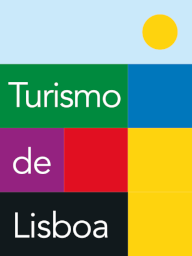The Codfish Route
The Codfish Route
The Codfish Route
The centuries long story of our “faithful friend” is told at the Codfish History Interpretation Centre, in an immersive exhibition where technology is allied to historical archives, large scale installations, artefacts and real video testimonials. In this place of homage to bacalhau you can also enjoy a selection of some of the best codfish products at the Terra Nova Mercearia, and experience a journey of flavours at Terra Nova Restaurante by Populi, where codfish is king.
Navigating through gastronomic seas, we finally arrive at Restaurante D' Bacalhau for a tasting which includes some of the most traditional delicacies made with this fish.
It is also impossible to mention the connection between Lisbon and codfish without walking by Rua dos Bacalhoeiros, which was named as such shortly after the 1755 earthquake, when codfish traders were transferred to the area.
On Lisbon’s Rua do Arsenal, which runs parallel to the Tagus and between Cais do Sodré and Terreiro do Paço, grocery stores Rei Do Bacalhau and Pérola do Arsenal display codfish as their king product, playing an important role in the city’s history. The two strongholds of this city artery, where our “faithful friend” has already been sold out in eight different locations.
Manteigaria Silva is another pearl of Lisbon´s traditional retail, and one the oldest bacalhoarias (codfish shops), still conserving many architectural elements from the time of its foundation.
Each one of these grocery stores proudly exhibits superior quality codfish, sold by weight, cut manually on request and wrapped with brown paper and string, as the tradition demands.
It is still to be explained why we left our vast coastline and travelled to the end of the world, to the most inhospitable seas, where countless generations of Portuguese men risked and lost their lives in search of this fish. But today it is a symbol of Portugal’s gastronomy, culture and history.
Before setting off, let us revisit the words of Eça de Queiroz: “Deep down my novels are French, just as I am, in almost everything, a Frenchman – apart from a certain sincere depth of lyrical sadness that is of Portuguese nature, a depraved taste for Fado, and a righteous love for bacalhau de cebolada” (Codfish with onions).
